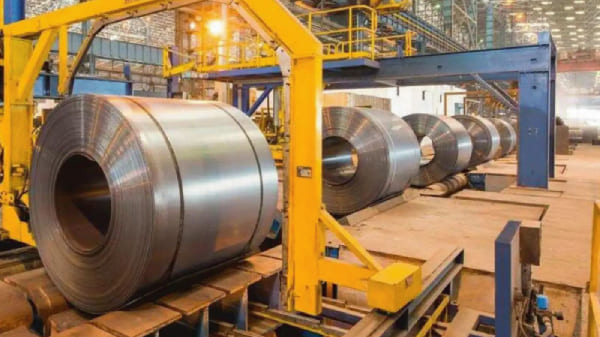Sustainability in Metal Forming: A Growing Trend

Sustainability has become a top priority across global industries, and metal forming is no exception. As environmental concerns intensify and regulations tighten, manufacturers are increasingly adopting sustainable practices to reduce their carbon footprint and boost competitiveness. Renewable energy solutions such as solar panels and wind turbines are being integrated into metal forming operations to minimize reliance on fossil fuels, while innovative waste reduction strategies—like recycling scrap metal—are becoming the norm.
In India, the push for sustainability is gaining momentum, with the manufacturing sector rapidly embracing eco-friendly practices to meet global standards. The Indian market for green manufacturing is expected to grow at a robust CAGR of 10.3% by 2026, driven by the growing demand for environmentally responsible solutions. This shift is particularly evident in sectors like automotive, where sustainable metal forming processes are used to create lighter, more fuel-efficient vehicles with lower environmental impact. For example, recycled aluminum and advanced forming techniques help manufacturers reduce material consumption while maintaining product integrity.
Sustainable Practices in Metal Forming
- Unmatched Precision: CNC machining enables the production of complex parts with exact specifications, offering a level of precision that manual processes can't match.
- Efficiency and Automation: The automation in CNC machining significantly reduces the need for manual intervention, resulting in faster production cycles and consistent, high-quality output.
- Complex Geometries: With CNC technology, manufacturers can easily handle intricate designs and complex shapes, making it essential for industries that require customized components.
- Material Versatility: CNC machining works with a broad range of metals like steel, aluminum, and titanium, which are critical in sectors such as aerospace, automotive, and heavy engineering.
Impact on the Manufacturing Sector:
- Cost Savings: Energy efficiency and material recycling cut operational costs.
Environmental Benefits: Lower energy consumption and waste reduce greenhouse gas emissions.
- Market Competitiveness: Sustainable practices enhance competitiveness in the eco-friendly product market.
Sustainability is not only essential for the environment, but it also offers substantial economic benefits for manufacturers. The Metal Forming Expo, scheduled from 11-13 April 2025 at PIECC, Moshi, Pune, will spotlight cutting-edge sustainable technologies and practices. Attendees will discover how to reduce environmental impact while maintaining operational efficiency and productivity. The event will showcase next-gen solutions for the metal forming industry, with a focus on renewable energy integration, waste reduction, and resource optimization. Join us at the Metal Forming Expo, to meet key players from industries like automotive, aerospace, and engineering, all looking to expand through green manufacturing practices.